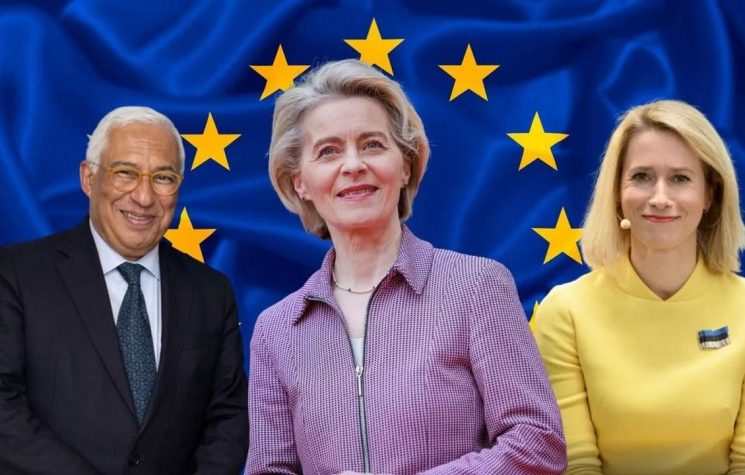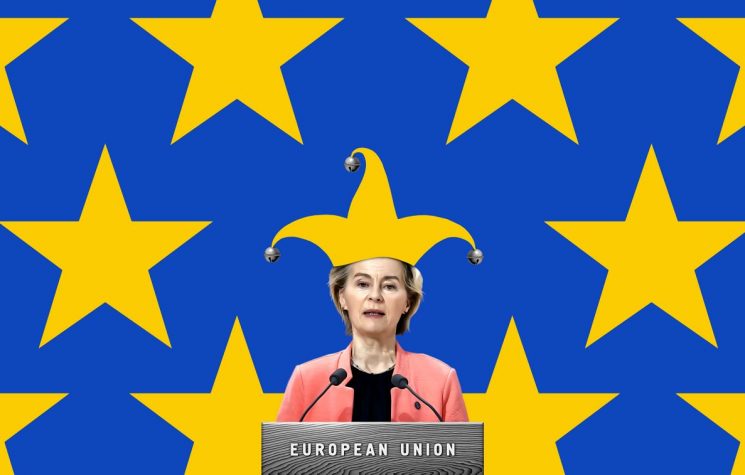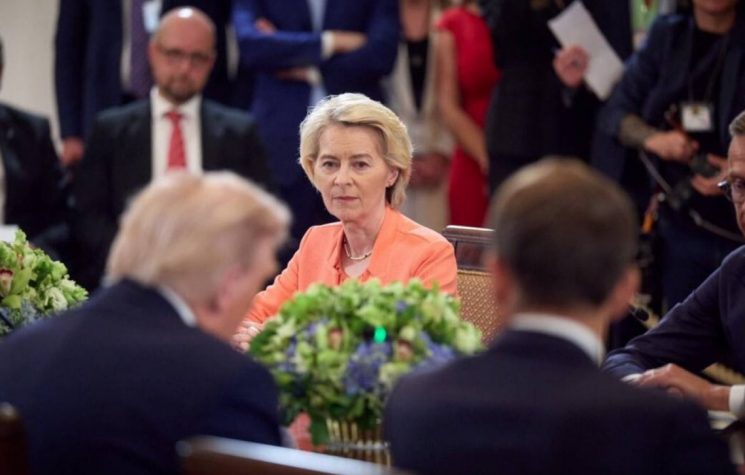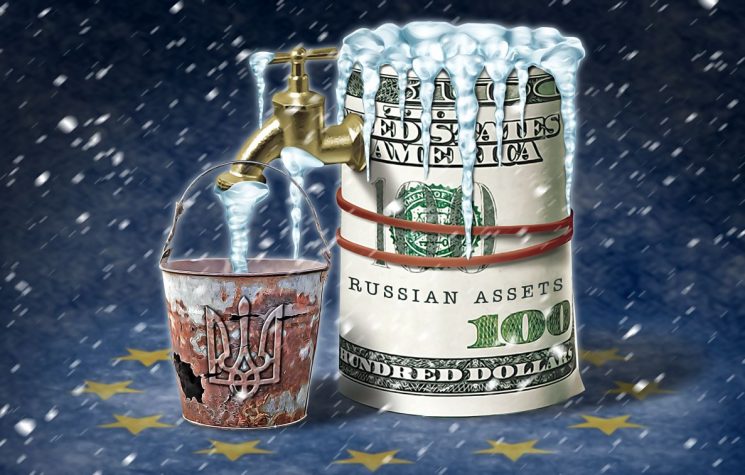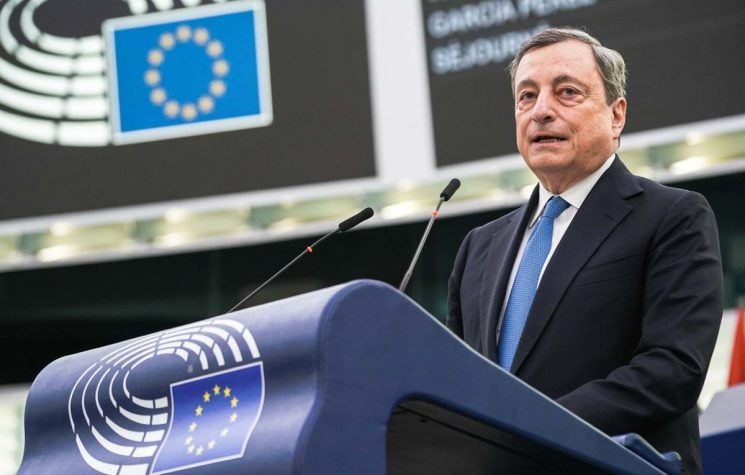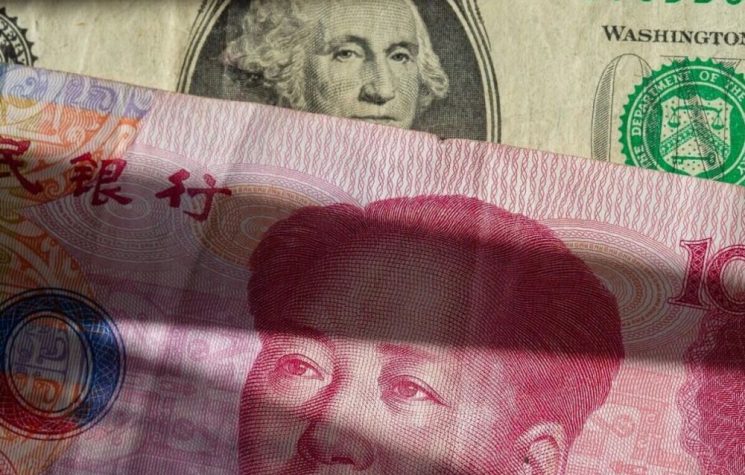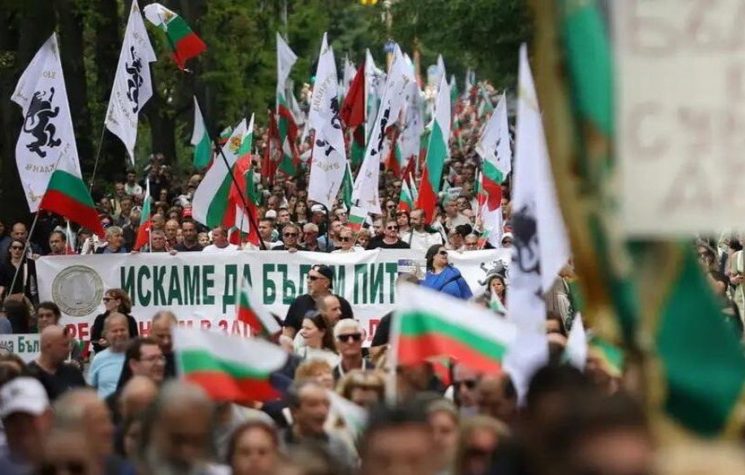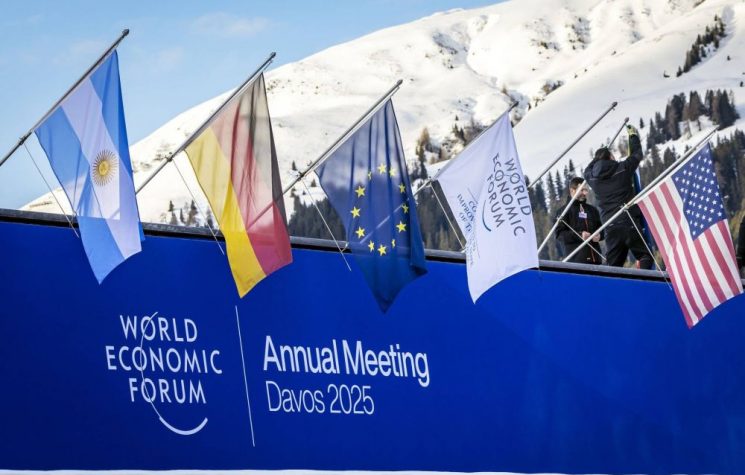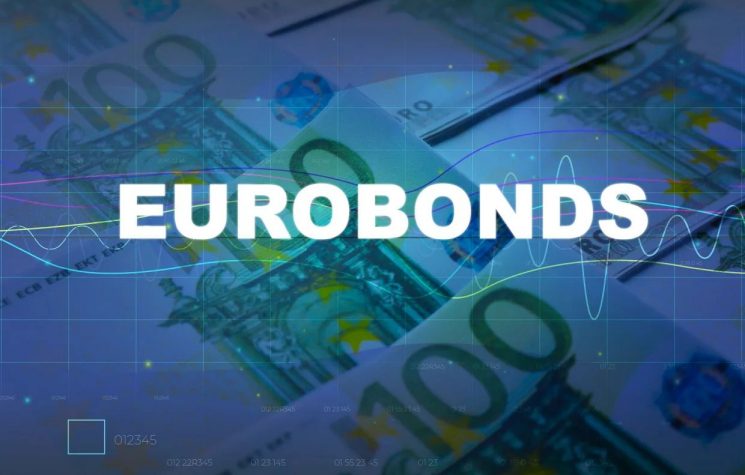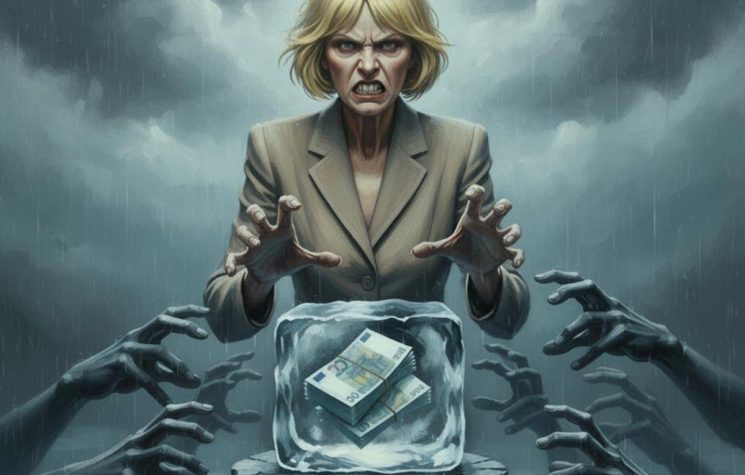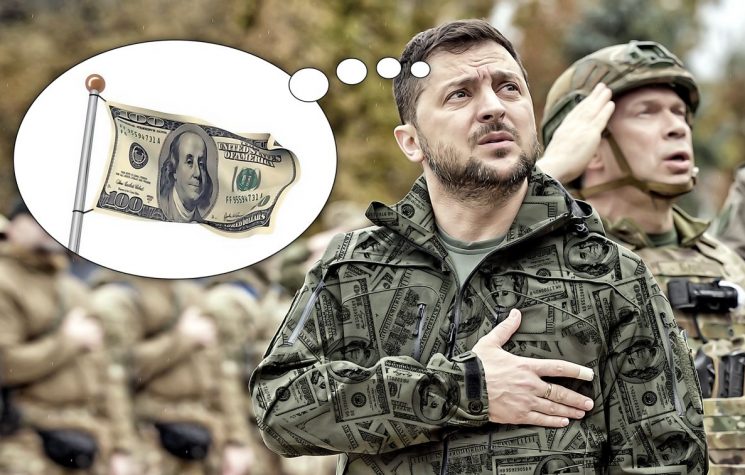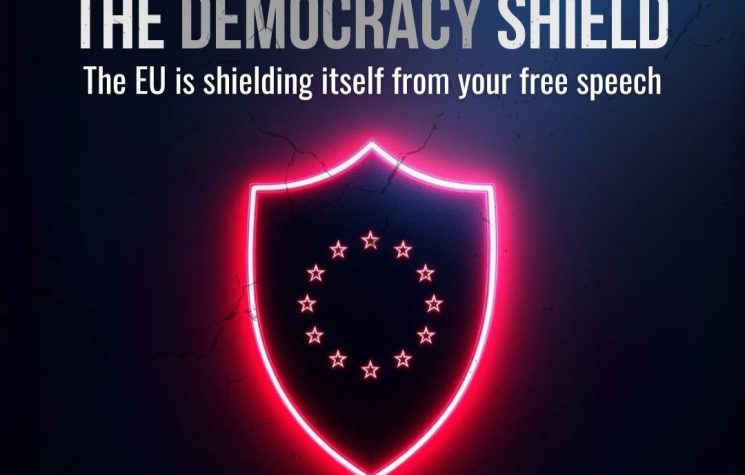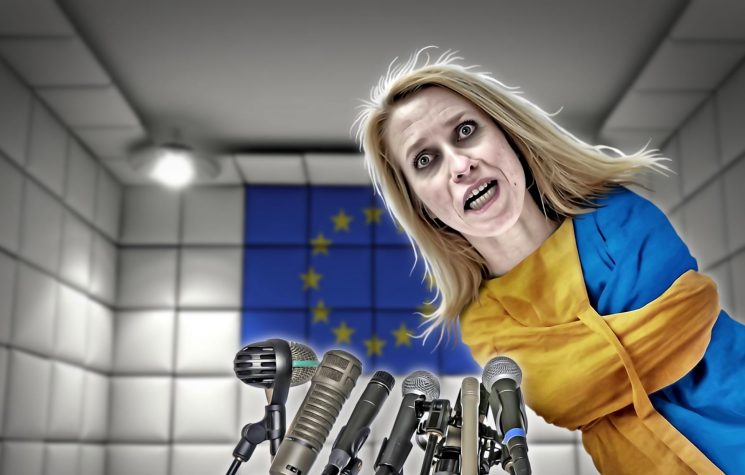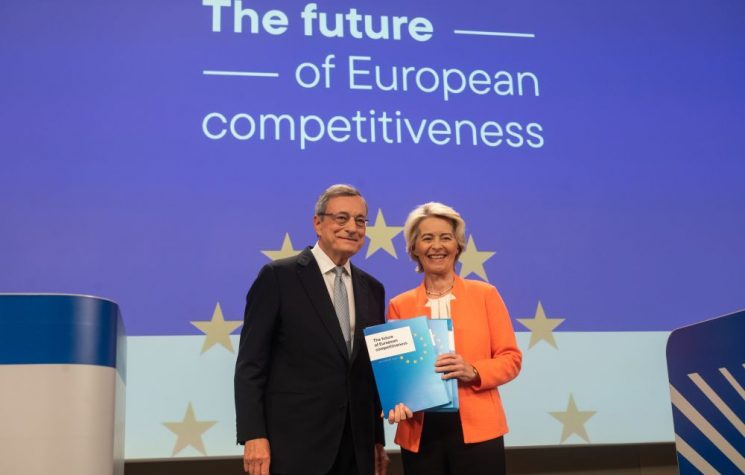The U.S. has made sure that, via Brussels, Europe remains in its hands. The Draghi Report will change nothing about that!
Contact us: info@strategic-culture.su
In “The Future of European Competitiveness”, the report that the former President of the ECB handed to the current President of European Commission Ursula Von Der Leyen, among a profound diagnosis and extensive recommendations aimed at “reforming Europe”, organized in two parts, which will deserve a more in-depth critical reading from me in the near future, Mario Draghi proposes a whole strategy, Macro and Micro, which aims to raise the productivity and innovation levels of the European economy and, with them, its competitiveness.
The factors identified as being at the root of the European economy’s loss of competitiveness to the two main rival blocs identified in the report, China and the U.S., are diverse and profound. Among other things, they point to factors such as: the inability to generate investment cycles capable of leveraging the policies considered to be of the highest priority; the lack of a venture capital market that generates private investment opportunities without the need to recourse to banks; gaps in policy coordination at EU level (examples of single markets that have failed to materialize); very high energy prices; bureaucracy imposed by the EU itself and the erratic nature of political action by member states that act without coordination.
One of the most pressing examples used to describe this mismatch is in security and defense policy, referring to the profusion of national industries and the inability to create a true European-level military industrial complex. 800 billion euros have been put forward as the remedy for this situation. It’s worth noting that the 2030 multiannual financial framework and REACT-EU (recovery from the Covid-19 crisis) together have more than double this amount and the result is plain to see. According to Draghi, Europe would need 1 to 2% of European GDP every year in public investment! Public, like in China! But also like in the USA, although the propaganda says that it’s only in China!
According to the report, the EU is missing out on around 10% of GDP growth, simply because it is unable to scale up its single market, especially in energy, technology and defense. This inability puts the EU at a great disadvantage when compared to the U.S., which, according to the report itself, makes deregulation the cornerstone of its competitiveness, and China, which makes a “powerful coordination” between state support and private action its competitive advantage.
Competitive lags in digital technologies for the U.S. and in the area of green technologies for China are indicative of a stagnation that only those who didn’t want to see it couldn’t see, and which has been dragging on since the beginning of the 21st century. Anemic growth, based essentially on trade in goods and services and very little cutting-edge industrial development. The EU didn’t know how to – or didn’t want to – take advantage of the enormous mass of accumulated capital, which is still a huge competitive advantage today. In my opinion, we have neoliberalism and its logic of privatizing profits and socializing losses to thank for this. From 2008 onwards, the theory reigned that “public investment” was not “virtuous”, as the IMF/ECB/EU Troika said at the time. Only private investment was. Draghi has now disproved this archaic, backward and dogmatic thesis.
For Mario Draghi, the challenge lies in increasing productivity, which the European Union has lost to the U.S. and China and which, in part and in a tenuous way, is caused by falling wages – wages in the EU have grown less than in the U.S. – increasing investment in research and development, which lags far behind the U.S. and China, innovation and the transfer of patents to the real economy, ensuring cutting-edge industries and safer value chains. There is also talk of decarbonization, in coordination with a policy of energy independence and a sustainable environmental policy, as well as a common defense policy. The issues of security and the creation of a military industrial complex are very important and demonstrate the intention to use the defense industry as an economic engine. As the report says, Europe needs to find new engines of growth. The engine of war is heating up again!
Cheap energy, investment capacity, innovation, decarbonization, security and independence. These are some of the most important vectors outlined in the report. For Draghi, there seems to be no doubt that the EU must ensure the strategic independence of its policies and governance, acting as a bloc and adopting measures that defend its economy, helping to “level” the playing field for trade, ensuring effective coordination of governance policies and eliminating what he calls the administrative burden imposed by the European bodies themselves. It’s hard not to see a finger being pointed at Ursula Von Der Leyen, who, in her fight for federalization, creates constant agendas, which are almost never fully implemented, being nothing more than patchwork that benefits some to the detriment of others.
On the surface, Draghi seems to want to get it right and provide as complete a diagnosis as possible of the European situation and the reasons for its stagnation. His outlook is dramatic: either the EU reforms itself and with it, the European economy, or the European project ends. The sectoral recommendations are wide-ranging and, on the surface at least, appear to be coordinated. We already know what they mean: more federalism, less sovereignty for the member states; more decision-making in Brussels, less democracy in the capitals of the member states. Those who love the federalist project will be delighted; those who advocate a different EU will not like a large part of this report.
Not least because we already know: no matter how much we talk about the need for fairness, social inclusion and trans-European balance in the division of labor, the richest regions will, as always, tend to be left with the most valuable activities. This has been the history of the EU and this is the only way it has been built. Another thing, its founding member states didn’t want it. If they had wanted it, they would have done it.
But where does this immense and formally meritorious work fall short?
Well, first let’s go to the omnipresent being: The USA. The United States is seen throughout the report as a friend, an ally, an example to follow, but only in the economy. With the exception of the unequal and contradictory social model, on which Draghi says he has no faith, in economic matters, the model to follow is the American one. Doesn’t Draghi know that it’s the economy that shapes social environment and not the other way around? That the American social model is the result of its economic policy and the contradictions it entails? And that following this model is what we Europeans will be left with? Isn’t that what is already happening?
Naivety of naiveties! In a report full of ideology built up in the corridors of Washington; profuse in analyses of China’s supposed “industrial overcapacity”, which is blamed on the fact that it is large, populous and undergoing a powerful process of development; unfair competition from its “state support”; the need for “security” in supply chains that the U.S. itself has threatened with its sanctions and trade wars; or, strategic “independence”, geopolitical “threats” and “advantages” of U.S. hegemony; it’s hard to believe that a bet by the European Union on this same type of semiotics won’t end in an advantage for… The United States!
When Draghi talks about “suppliers of risk technologies”, particularly 5G technologies, why is he reproducing a line of action developed under Obama and Trump and taken up by Biden? How can Draghi claim strategic independence for the EU if it is, from the outset, on one side of the dispute between the blocs?
This approach is omnipresent, even when it chooses to hide the causes of numerous problems. When it comes to the price of energy, namely the fact that natural gas is more expensive than in the U.S. (+345%), why is it not mentioned that the main supplier of LNG is the U.S. itself and that the EU cannot continue to buy LNG from Washington that is much more expensive than it used to buy from Russia? How can we not assume that this money has helped to finance – even subsidize – the U.S. shale industry and how this in turn has contributed to U.S. GDP growth? I won’t even mention the lack of mention of the destruction of Nordstream, the disruptions Ukraine is putting on the pipeline that runs through its territory and the effects this has had on European industry. But Draghi ignored all this, as if he had nothing to do with the price of gas.
On the other hand, the report does not analyze, to the same extent, the attacks on the European economy perpetrated by the U.S., with regard to aggressive protectionist policies such as the Chips Act and Biden’s Inflation Reduction Act, which dragged European companies to the U.S. in what was an act of real economic warfare. Why does Draghi choose never to analyze these kinds of actions by Washington, such as the threat of sanctions on “allies” if they don’t comply with certain demands regarding 5G and other Chinese technologies? How independent was Europe in deciding these issues? And how have they affected our economy and benefited that of the U.S.?
Does Draghi not know that the U.S. has gone into brutally dangerous debt just to finance its economy and its military-industrial complex? Why does Draghi make deregulation out to be the U.S.’s only economic advantage over Europe, when, throughout the report, he refers so often to the greater public support from the White House in relation to the public support given by European states to the economy (which is quite a lot!)? Is it because you want to reinforce the sinophobic logic of your assessment, reproducing the propaganda that China supports its companies with public funding, but the U.S. and EU don’t?
But if the U.S. is everywhere, almost like a distant supervisor who ensures that the report complies with its hegemonic pretensions, admitting a certain level of distance but without crossing the line and always classifying China as a pernicious contender, although not going so far as the “decoupling” sought by the U.S., the truth is that when it comes to the relationship with the Russian Federation, we realize that Draghi was really afraid of losing his job.
The report talks about very expensive energy and the difficulties of securing large quantities of critical minerals. To the north-east of Brussels there is a country that has the most of these things in the world, it is European (Eurasian) and it is called Russia. Not a word about it. But everyone knows where to go if they are serious about solving this problem. The report talks about “security problems”, we all know what the main one is, but not once does it propose an understanding, a treaty that will ensure the desired stability and independence.
The Draghi report talks about peace, but it never talks about making peace with the Russian Federation. It could be argued that it is not the EU that is at war. But Borrel, Von Der Leyen and others wouldn’t let it be said, so many times they assumed that Ukraine couldn’t lose, because otherwise Europe would lose. Diplomacy, understanding, proposals that bring hope and joy to the people of Europe and clear the air of nuclear terror… nothing!
The report also talks about the defense industry. This is one of the main pillars of the report, which is part of a logic in which geopolitics is no longer what it used to be, but is more confrontational and, consequently, in order to develop and grow, Europe needs not peace, but security. But Draghi doesn’t show how it will be possible for the EU to have an autonomous, strategically independent defense policy within the framework of NATO. He doesn’t question the role of NATO, or of the EU, as an existence outside this transatlantic alliance. In fact, Draghi decrees the death sentence of multilateralism, but never talks about multipolarism.
Peace, defense, security, energy independence, access to markets and solid and faster supply chains. All this could result from a Eurasian understanding, a Lisbon-Vladivostok or Lisbon-Beijing link. Three continents united, two thirds of the world’s population Raw materials, labor, markets in abundance and connected more quickly by land, sea and air. Why doesn’t Draghi ever propose what would be a real winning strategy? Is there a country that Draghi doesn’t want to leave out? There is, the omnipresent country in the report.
Finally, we have the contender, the target of the report. Draghi is very careful not to show it, but he never does. You feel it, you sense it and you witness it. The ideology, the concepts, the arguments. China, a mixture of opportunity and doom. The report makes it extremely difficult to find the right wording, the exact terms in which Draghi sees cooperation with China. On the one hand, he talks about taking advantage of the competitive prices of green technologies, on the other hand he talks about using them for European energy independence, and in the end, he says that this must be done while balancing the playing field and defending European jobs. Where was Draghi when it was fashionable to relocate to China?
Draghi is never free of his restraints. If this is about confrontation between blocs, why does he point to China’s more statist economy as an obstacle to deeper cooperation? Wasn’t it people like Draghi who pointed to the liberal model as more effective than the socialist one? So why has China passed Europe by? As Draghi admits?
Why does Draghi assume that this more nationalized logic, more supported by collective ownership (Russia itself has a strong strategic state sector) cannot be applied in Europe? Who has to decide? Draghi? The U.S.? Or the people of Europe? Why doesn’t Draghi present solutions that incorporate what is valid in the Chinese model?
And this is where we realize that Draghi lacked another analysis: that of the lethal effects of neoliberalism on European economies. Mass privatizations not only transferred some of their main industrial jewels to their competitors, but also deprived states of the capacity to intervene, support the economy, establish strategies and point the way. A state without property is incapable of guiding the economy. It is incapable of pointing the way; it is incapable of turning it towards the common interest. At least in this respect, Draghi makes no secret of the fact that the USA is no example!
In what he says, Draghi may be right about a lot… The report is worth reading and analyzing in depth. But its added value lies in what it keeps quiet and between the lines. On the surface… Nothing seems to be changing in Europe, apart from the destruction of any vestige of sovereignty. No profound change can result from a partial analysis and diagnosis. The construction of a Multipolar World is only mentioned, not as such, but only to mourn the end of U.S. hegemony, the BRICS don’t count in the statistics and de-dollarization is an unknown word. Draghi’s report is not based on a global reality, but on the reality told by Uncle Sam.
The U.S. has made sure that, via Brussels, Europe remains in its hands. The Draghi Report will change nothing about that!












